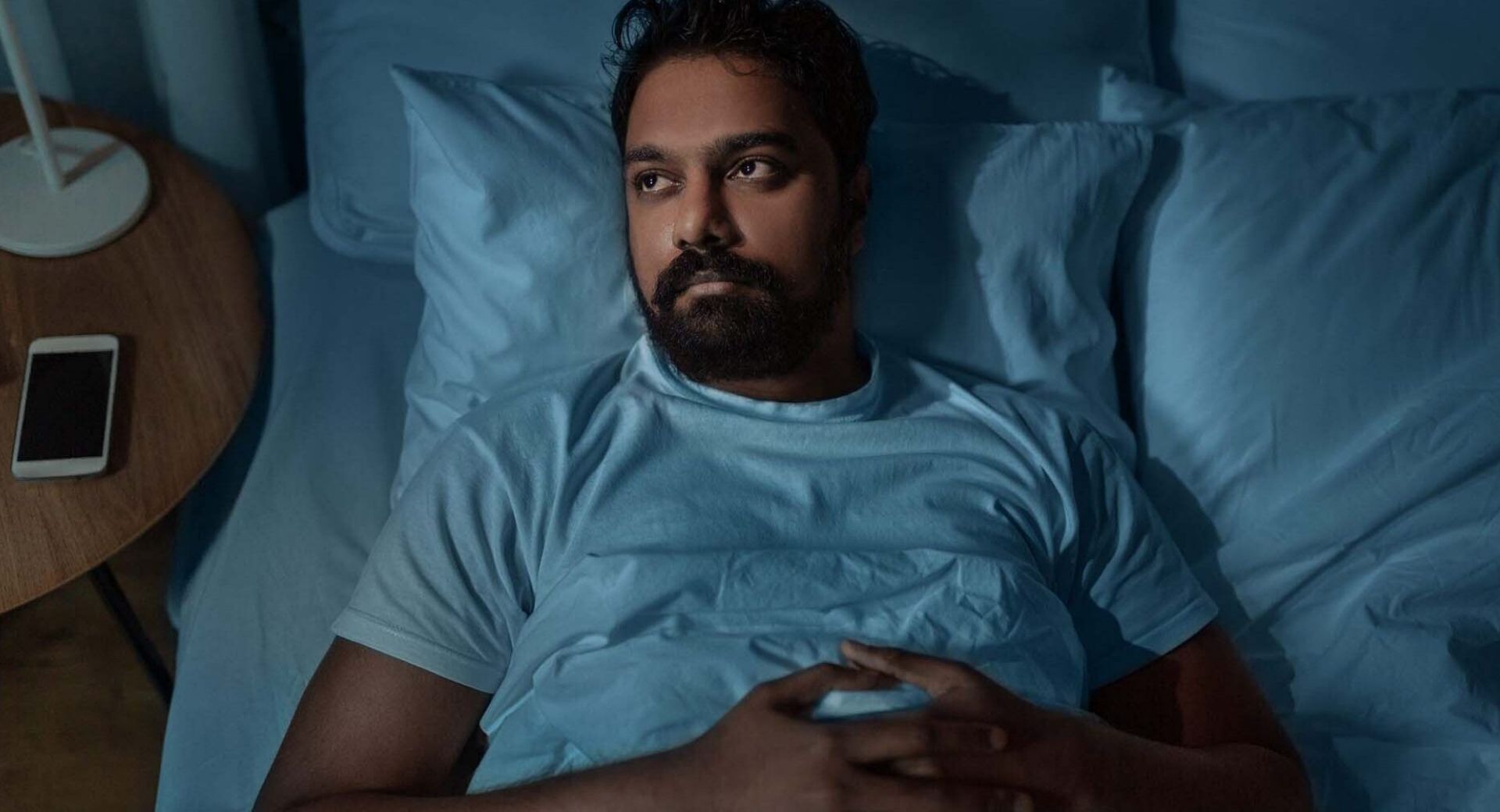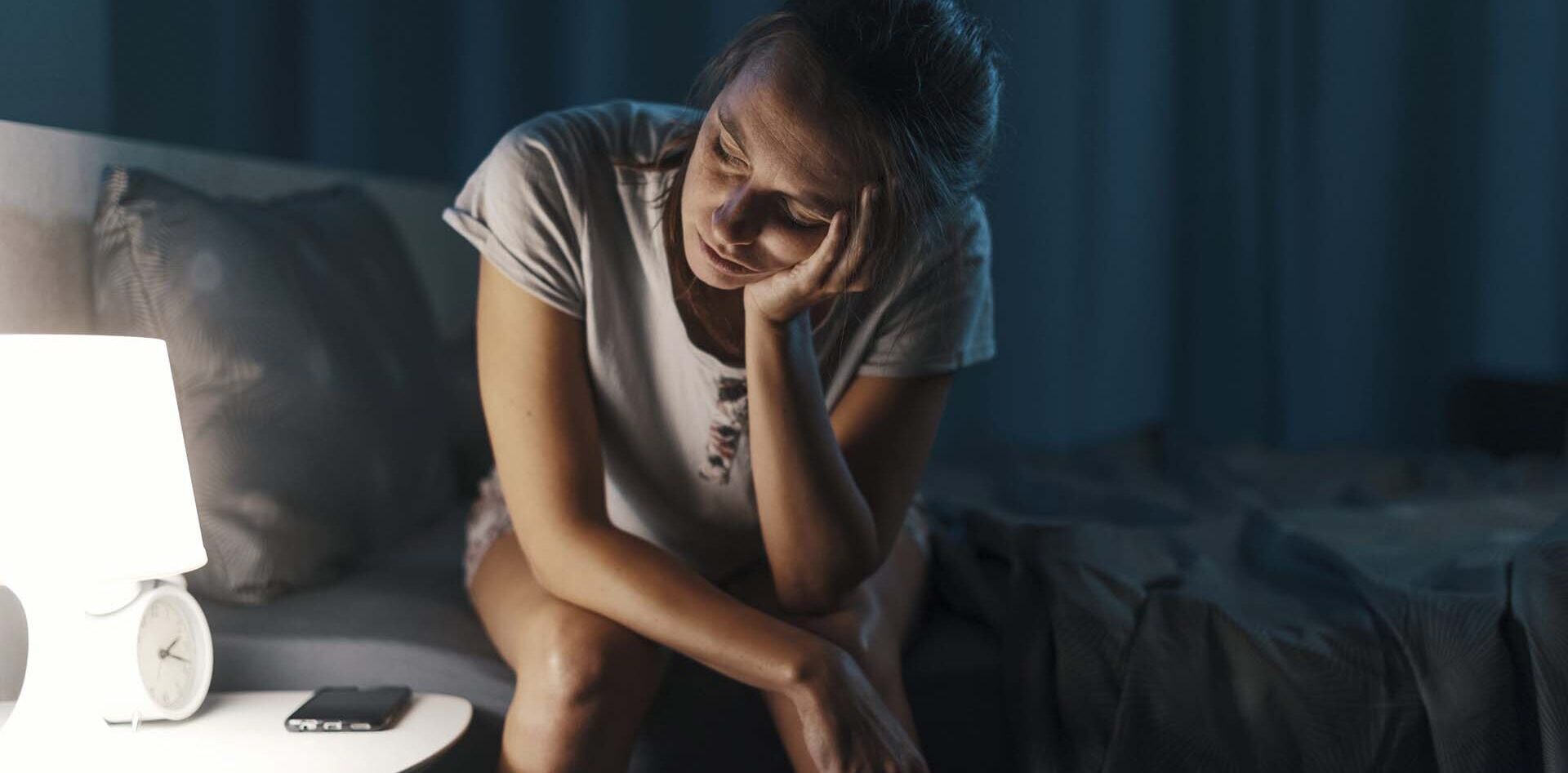INSOMNIA
Do you suffer from insomnia?
Are you having trouble getting a regular, normal night’s sleep ? Then you may be an insomniac !
Insomnia
MULTIPLE LEVELS
It exist a milder stage with difficulty falling asleep immediately after going to bed, or inability to go back to sleep after waking up during the night (early awakening). There may also be a tendency to wake easily after falling asleep, with alternating periods of sleep and wakefulness, or deep sleep, or nightmares and distressing dreams. This is light sleep.
But there is a more serious stage : the person will then be unable to sleep for the whole night or for several nights in a row.
Insomnia is often accompanied by a reduced appetite and mental fatigue. The health consequences can then be very wide-ranging, from chronic fatigue to depression, physical weakness or even reduced libido.
you're not an insomniac
In the following cases
- Each person may need a different amount of sleep. For example, someone who sleeps little, but is in full vitality thanks to a robust constitution, should not be considered an insomniac.
- An elderly person who remains awake at night after a certain amount of sleep may not be considered an insomniac.
- Disruption or temporary loss of sleep caused by emotions, changes in the living environment or environmental causes (noise, bright light, screens, etc.) should not be considered insomnia.
If insomnia is caused by other illnesses (fever, cough, pain, etc.), these must be treated first. Insomnia should not be confused with an illness that prevents a person from lying down and going to bed.

In Western Medicine(OM), insomnia can be found in illnesses such as neuroses, neurasthenia, mental illnesses such as depression, but also in certain chronic diseases such as high blood pressure (HTA), indigestion or poor digestion, anemia, hepatitis, cerebral arteriosclerosis, menopause, and so on.
In Traditional Chinese Medicine(TCM), in ancient medical texts, insomnia was addressed under the following names:
- BU DE MIAN (impossible sleep) ;
- BU DE WO (impossible to lie down) ;
- MU BU MING (don’t close your eyes)
THE CAUSES
OF INSOMNIA
- Emotional causes such as anger, depression, anxiety, sudden panic fear or a fearful disposition that prevents you from making decisions, leading to mental rumination at night, intellectual overwork and so on.
- Causes linked to an unsuitable diet : eating too spicy, fried, fatty or sweet food, eating too much or drinking too much (water, tea, coffee or alcohol) hurts the digestive system and in particular the intestines which, wich is known in the West as the second brain. Stagnant food in the digestive tract prevents a peaceful night’s sleep and causes restlessness when lying down.
- Other causes include a weak constitution, a post-partum period, long illnesses or convalescence after a serious illness.
- Overwork (imbalance between activity and rest): too much work or even too much sport inevitably leads to a lowering of IQ (energy). Conversely, excessive rest or lack of activity will cause an accumulation of QI. Both consequences will lead to restless sleep and insomnia. Contrary to popular belief, we need energy to get a good night’s sleep, and a lack of it will prevent the body from setting up the sleep mechanisms.
- In TCM, a recurring cause for many diseases is excessive sexual activity. Poor control of sexual desires will lead to disharmony between the energy of the Kidneys and that of the Heart. This will cause mental agitation and sleep disturbance.

SOLUTIONS
IT EXISTS!
In MO, it’s very simple: anxiolytics and sleeping pills are prescribed. This won’t get to the root of the problem, but it will help the person get back to sleep. The downside will be side effects such as vigilance disorders, memory issues, balance problems leading to falls and accidents, behavioral disorders, drowsiness, etc..
In TCM, there are more solutions and they focus more on addressing the cause of insomnia and its energetic mechanisms. They have no side effects.
- Body acupuncture: stimulating a series of acupuncture points with small, fine needles will restore a coherent energy balance conducive to deep, soothed sleep. Many ancient acupuncture books mention acupuncture point formulas for treating insomnia.
- Auricular acupuncture or auriculotherapy: stimulating certain points in the ear with special needles or pins can bring back sleep. A minimum of 10 sessions is required.
- Traditional Chinese pharmacopoeia: many herbal remedies and ancestral formulas exist in the arsenal of traditional pharmacology to treat all sleep disorders. To correct the energetic imbalance causing insomnia, one simply needs to drink herbal decoctions for a period of time. There’s no need to search for them yourself; only an experienced and specialized practitioner will know what to give you for your particular case. But nothing will replace a good re-education of lifestyle advised by a professional in Chinese Medicine psychology:
- Psychic hygiene: your practitioner will guide you through techniques to harmonize your emotions. He or she will take into account your life issues and work with you to find solutions to avoid the anxiety they cause.
- General lifestyle hygiene: wise advice on your diet, your alcohol or tea/coffee consumption, your cigarette consumption will be very useful to you to regain a lifestyle conducive to sleep. Eating less in the evening, preparing a good foot bath in hot water, turning off screens at a specific time, and reducing surrounding noise as much as possible will be among the many tips he will give you. When and how to exercise, practice QI GONG, balance work and rest periods and take herbal remedies, your Chinese medicine practitioner will be able to help you on your way to Morpheus land.

